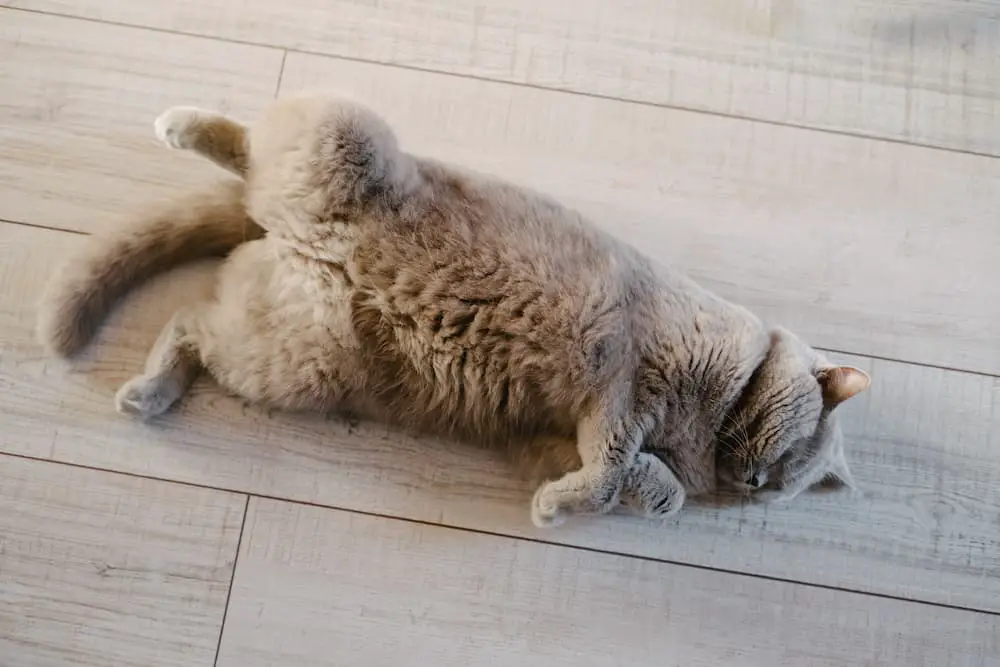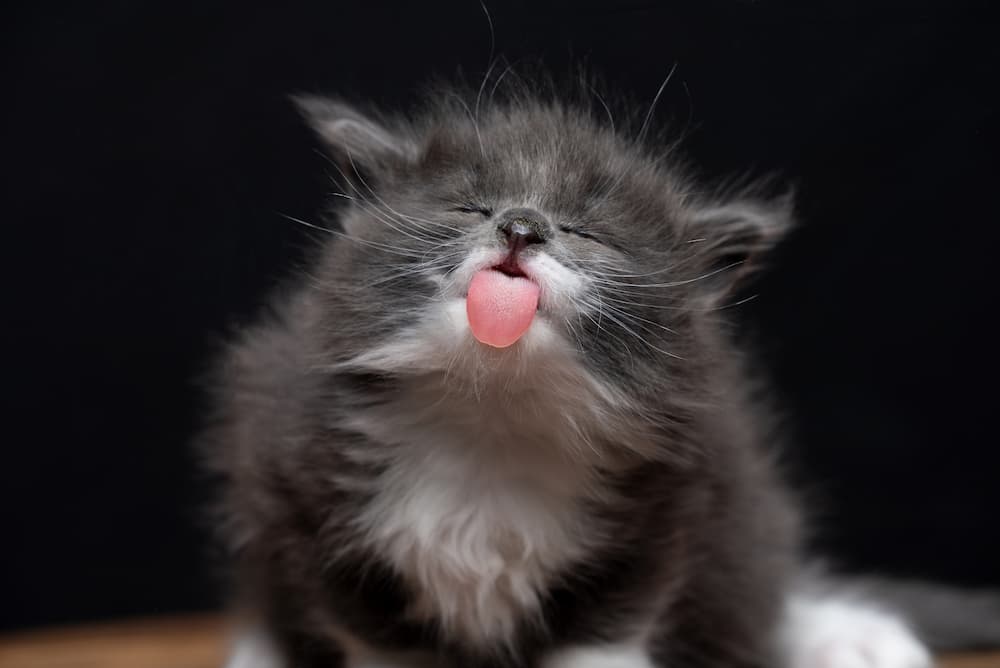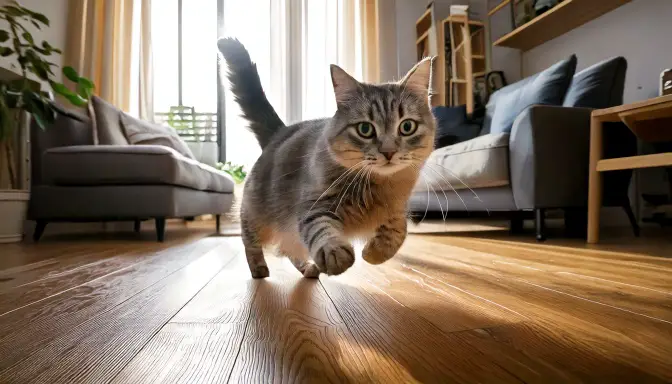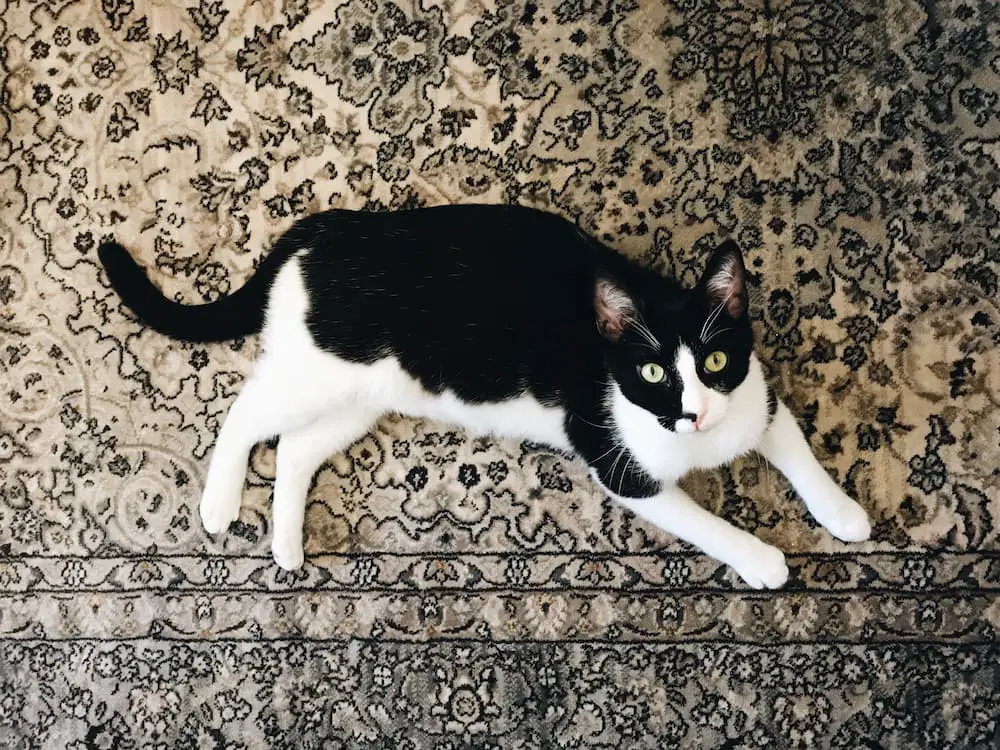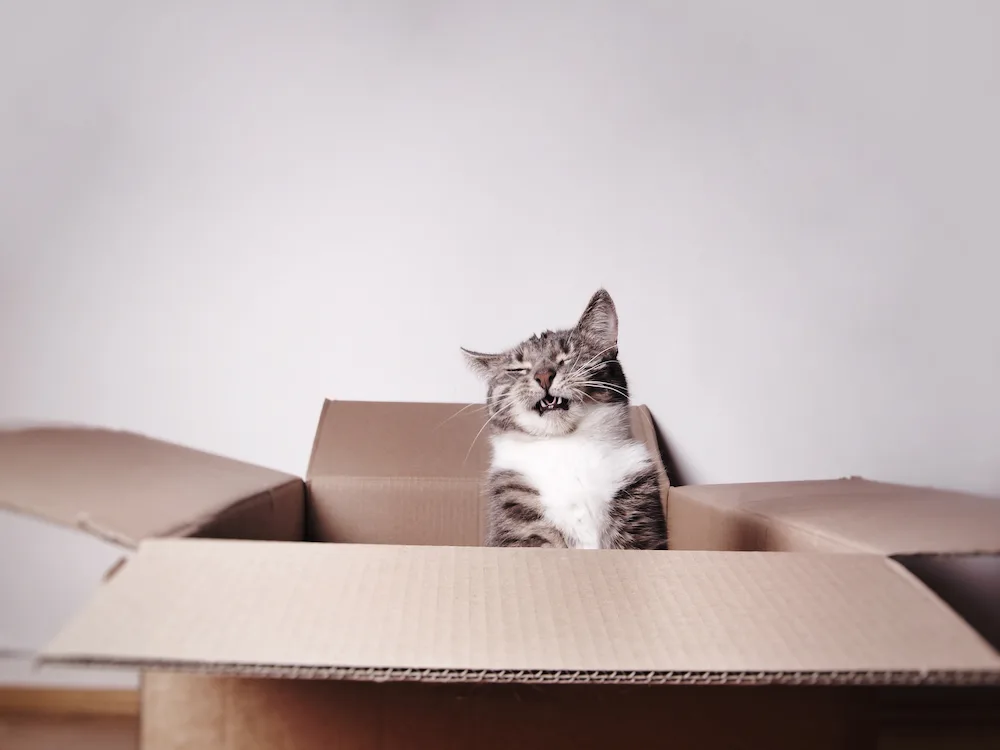Picture this: you’re enjoying a quiet evening at home, the air is filled with the soft purring of your feline friend curled up beside you. Suddenly, an unexpected guest arrives — a peculiar scent that tickles your nose, prompting the question, “Can cats fart?”

Yes, fellow cat parents and pet lovers, we’re venturing into the whimsical world of feline flatulence, a topic shrouded in mystery and, admittedly, a bit of humor. Despite its amusing nature, understanding the quirks of your cat’s digestive system is key to ensuring their health and happiness.
The Science Behind Cat Farts
Cats, much like their human companions, have digestive systems that sometimes produce gas. In other words, yes, cats can fart. This could be due to several reasons, such as:
- Tummy Troubles: A change in diet (or eating something they shouldn’t have) can lead to gaseous expressions. Did someone sneak Fluffy some table scraps? That might be the culprit…
- Food Intolerance: Just like people, cats can be intolerant to certain ingredients in their diet, causing an increase in flatulence. If your cat has always had the toots, try a limited ingredient diet to steer away from the most common offenders.
- Swallowing Air: Some cats inhale air while eating, especially if they’re the type to gobble their food. A slow feeder is the best solution for cats that scarf down their meals.
- Parasites: The presence of little critters like Tritrichomonas foetus can cause digestive upset and gassiness. Your vet can test for parasites and treat your cat with the right meds to get rid of them.
- Feline IBD: Inflammatory Bowel Disease can affect your cat’s ability to digest and absorb nutrients properly, leading to gas and other symptoms. Your vet will need to diagnose this and it can be treated with a combination of medication and diet.

Yes, Cats Do Fart
Cat owners around the globe can share tales that’ll make your nose curl and your sides split. From silent but deadly stealth bombs to the more, shall we say, audible declarations, cat farts are a testament to the mysterious inner workings of our beloved pets.
You’ll want your sound on for this one!
The “Silent But Deadly” Cat Fart Phenomenon
So you’ve just heard a glorious, audible cat fart, but (it should come as no surprise) cats are masters of the silent but deadly technique. Often, you won’t know it’s happened until it’s too late, leading to the all-too-familiar, accusatory glance around the room: “Who farted?” Well now you know, it’s okay to blame it on the cat!
Tips for Managing Cat Farts
While the occasional cat fart is normal, there are steps you can take to reduce its frequency:
- Monitor Their Diet: Keep an eye on what they’re eating. Sometimes, simply switching their diet can reduce gas.
- Slow Feeder Bowls: If your cat eats too quickly, consider using a slow feeder bowl.
- Regular Check-ups: Keeping up with veterinary appointments can help catch and treat issues like parasites and IBD.
- When to See a Vet: If your cat’s passing gas more frequently or showing discomfort, it’s time to check in with your vet.

Final Thoughts About Feline Flatulence
Cat farts, while humorous, are a normal part of their digestive process. By understanding why they happen and when they might be a sign of something more, we can better care for our furry friends. And remember, next time you catch a whiff of something funky, don’t be too quick to judge. It might just be your cat’s way of saying, “I’m comfortable with you.” (And we all know they’ve had to smell your farts a time or two!)
Remember, in the grand tapestry of pet ownership, a little gas is a small price to pay for the love and companionship our cats provide. So, the next time you’re asking, “Can cats fart?” you’ll know the answer—and have a little chuckle, too.

